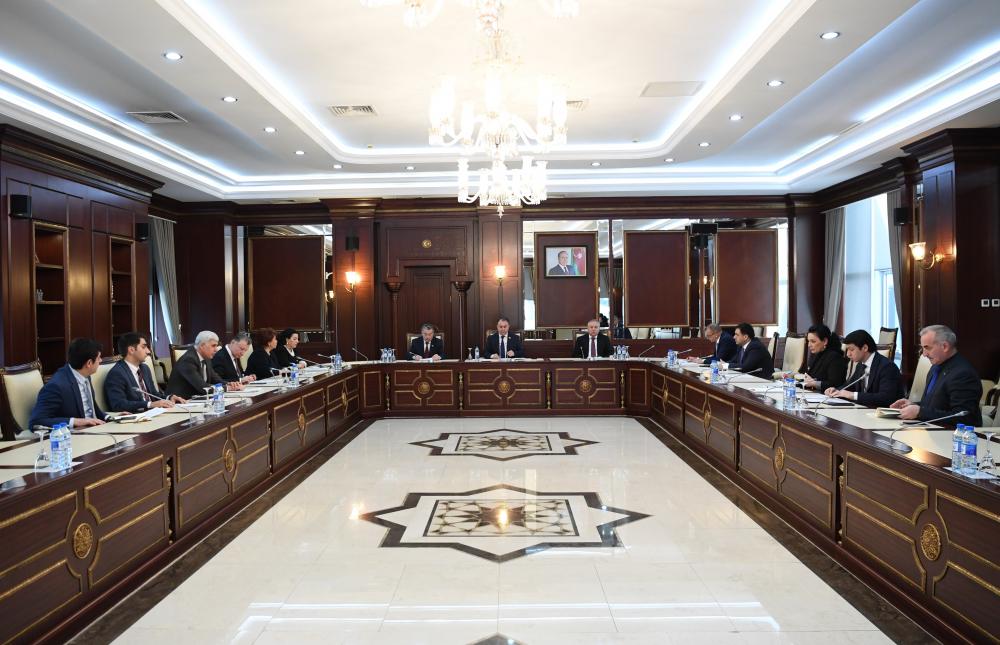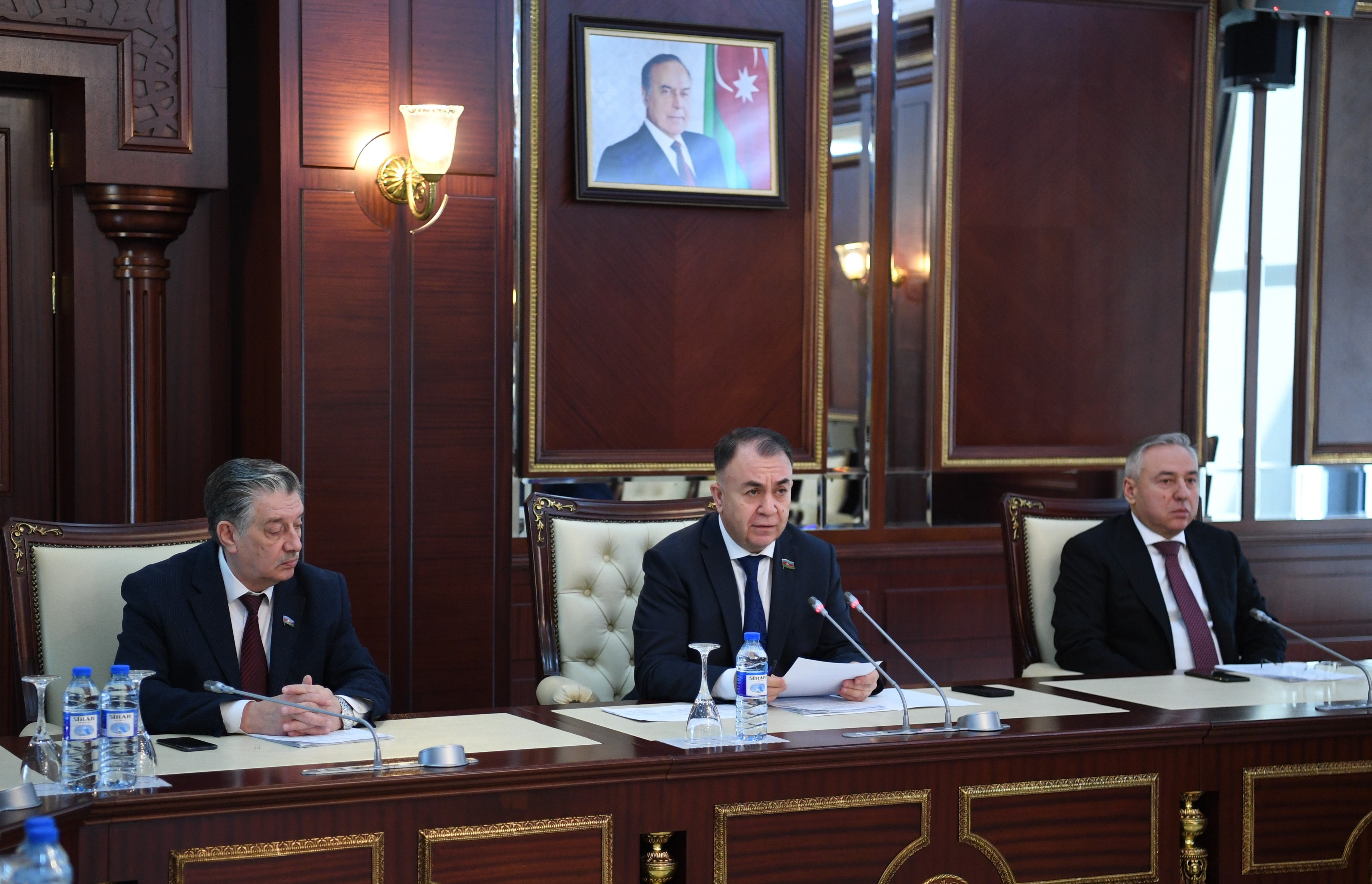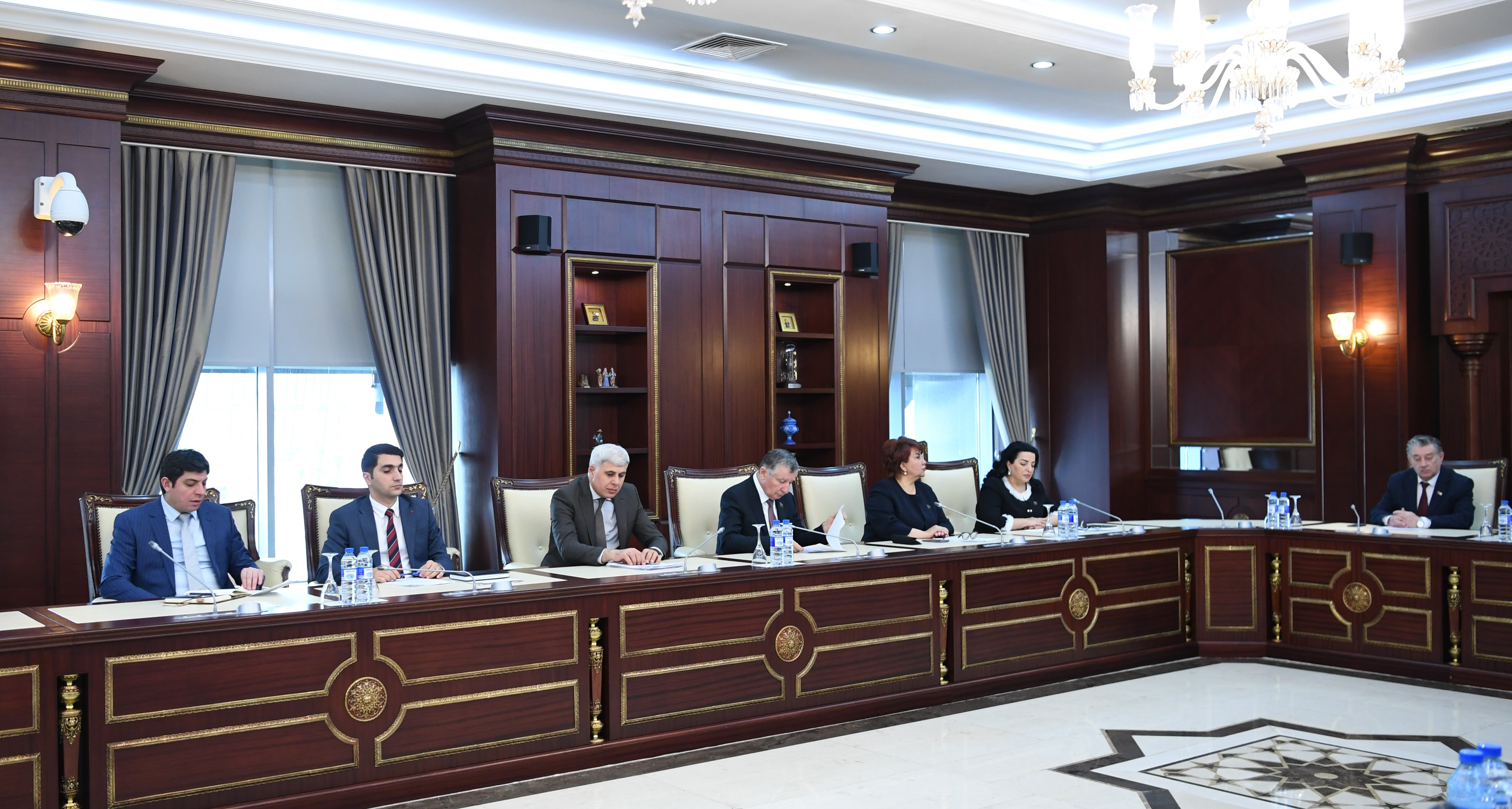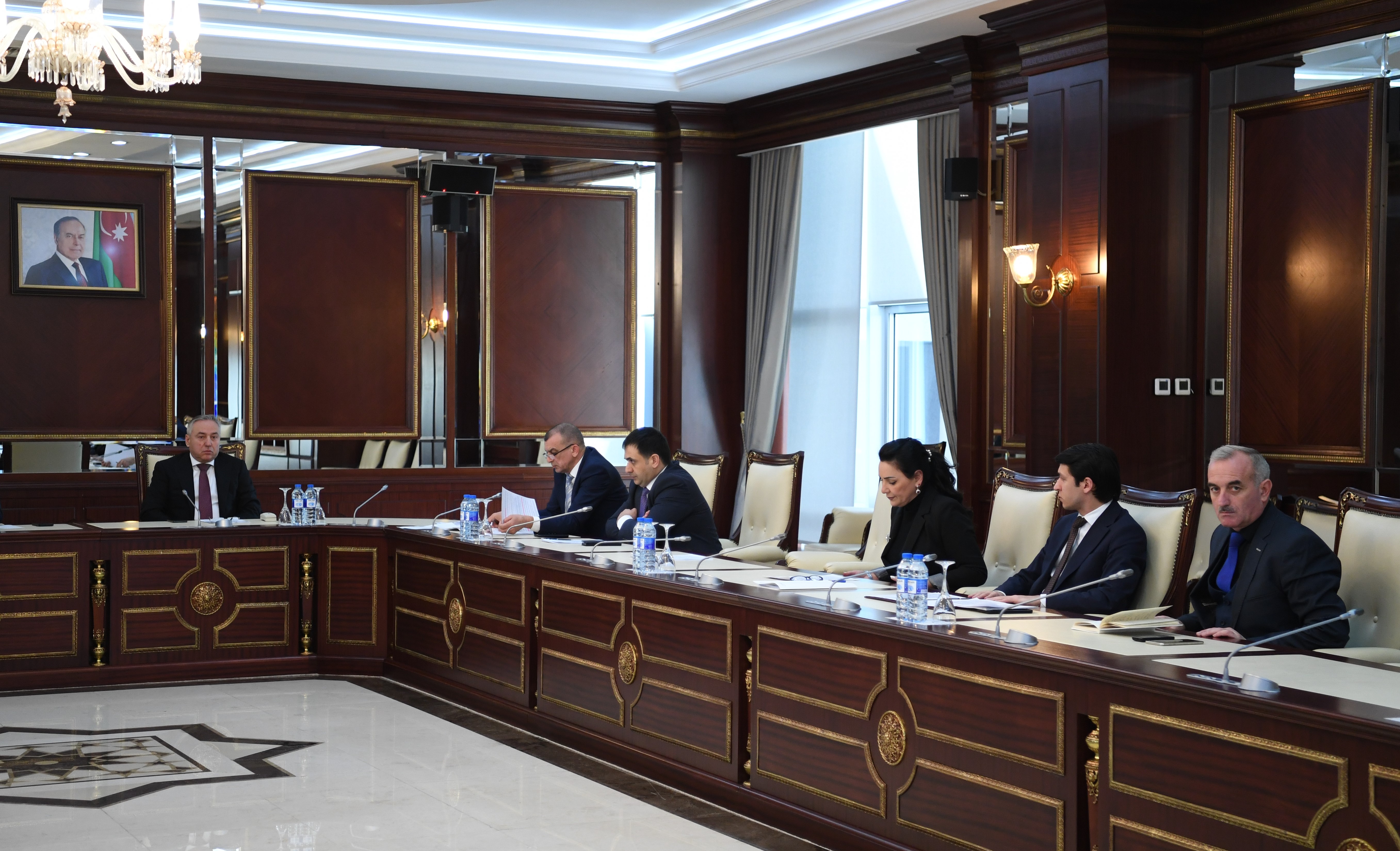Natural Resources, Energy and Ecology Committee Meets

The Milli Majlis Committee for Natural Resources, Energy and Ecology held its first meeting in the 2023 spring session on 26 January.
The committee chairman Sadig Gurbanov introduced the agenda and said it contained 9 items with the first two being the 2022 autumn-session performance account and the work plan for the current session, and the remaining 7 being draft laws to consider at the meeting.
The head of the committee mentioned 21 issues considered at 8 meetings, as well as the processing of 351 appeals received during the period and 34 meetings held during it: 5 in the Milli Majlis and 29 in the constituencies in Siazan and Shabran districts as recounted the work done last session. In addition, the chairman and members of the committee had participated in local and international events, and had held a number of meetings in inter-parliamentary working groups as well as with their constituents.
Turning then to the work plan for the current session, Sadig Gurbanov said it included reviewing draft laws and other documents coming before the committee, taking relevant decisions, and discussing renewable energy legislation and topical issues in these areas with relevant environmental and energy bodies. There are also plans to discuss the current state and restoration of Hajikabul Lake, the impact of global climate change on Azerbaijan and the problems of water supply and drinking water supply. The committee will also focus on the environmental situation in the Garabagh Economic Region, carry out environmental education activities with the Heydar Aliyev Foundation, and meet with NGOs specialising in environmental issues.
The Bills on the agenda were said to consist of amendments of a unifying nature.
First, there was a set of amendments to the laws ‘On the Status of the Member of the Milli Majlis of the Republic of Azerbaijan’, ‘On Courts and Judges’, ‘On Fire Safety’, ‘On Insolvency and Bankruptcy’, ‘On Protection of the Population Health’, ‘On Perpetuating the Memory of Those Fallen for the Motherland’, ‘On Civil Defence’, ‘On Grants’, ‘On Hydrometeorological Activities’ and ‘On the Rights of the Child’. The following array of amendments concerned the laws ‘‘On Information, Informatisation and Protection of Information’, ‘On the Freedom of Reference’, ‘On the Publishing Business’, ‘On Obtaining Natural Environmental Information’, ‘On Telecommunication’, ‘On Obtaining Information’, ‘On Theatre and Theatrical Activities’ and ‘On Culture’. Those were followed by a draft law containing amendments to the laws ‘On Countering Religious Extremism’, ‘On Licences and Permits’, ‘On Martial Law’, ‘On the Rules of Ethical Conduct for Municipality Members’, ‘On Assessing Environmental Impacts’, ‘On Employment’, ‘On the Chamber of Accounts’, ‘On Safeguarding Children against Harmful Information’, ‘On Psychological Aid’, ‘On the Rational Use of Energy Resources and the Energy Security’ and ‘On Tourism’. Next, there was an assembly of amendments to the laws ‘On the Legal Defence of Specimens of the Azerbaijani Folklore’, ‘On Protection and Rational Use of Cultivated Plants Genetic Stocks’, ‘On the Social Service’, ‘On Compulsory Child Health Examinations’, ‘On Regulating Business Checks and Protecting Enterprisers’ Interests’, ‘On the Public Involvement’, ‘On the Protection of Green Spaces’, ‘On the Rules of Ethical Conduct for Municipal Employees’, ‘On the Securities Market’ and ‘On Shusha – the Culture Capital of Azerbaijan’. The other yet collection of amendments had to do with the laws ‘On Lotteries’, ‘On the Electronic Signature and the Electronic Document’, ‘On Hunting’, ‘On the State of Emergency’, ‘On Accountancy’, ‘On Intelligence and Counter-Intelligence’, ‘On the Legal Protection of Data Compendia’, ‘On Protecting and Promoting the Azerbaijani Carpetry Art’, ‘On the Central Bank of the Republic of Azerbaijan’ and ‘On the Judicial and Legal Board’. The amendments tabled then were for the laws ‘On Traffic’, ‘On the Committees of the Milli Majlis of the Republic of Azerbaijan’, ‘On the Land Market’, ‘On Environmental Protection’, ‘On Anti-Terrorism’, ‘On the National Archive Fund’, ‘On the Status of the Municipalities’, ‘On Operational and Investigative Activities’, ‘On Water Supplies and Wastewater’ and ‘On Grain’. Next and last, the committee chairman presented the meeting participants with draft amendments to the laws ‘On Local Opinion Polls’, ‘On Motoring Roads’, ‘On the Diplomatic Service’, ‘On Statement Procurement’, ‘On the Youth Policy’, ‘On the State Language of the Republic of Azerbaijan’, ‘On Environmental Education and Public Enlightenment’, ‘On the State Policy concerning Azerbaijanis Living Abroad’, ‘On Regulated Prices’ and ‘On Banks’.
All those amendments followed and were connected to the application of the law No 471-VIQ ‘On Media’ (dated 30 December 2021), according to Sadig Gurbanov.
The committee’s Fatma Yildirim, Nasib Mahamaliyev, Iltizam Yusifov and Afat Hasanova described the 2022 session performance account as acceptable and commented on the work scope for the current session as well as the declaration of 2023 The Heydar Aliyev Year. The MPs also voiced their considerations about the current condition of the Hajikabul Lake, propaganda of green energy and other environmental matters.
It was decided in the end that the last-session performance report was to be noted duly, as it were, the 2023 spring-session work plan to be approved and the Bills considered at the committee meeting to table before a plenum of the Milli Majlis.
Incidentally, the other participants of the committee meeting included the MPs Mashhur Mammadov, Aliabbas Salahzade and Mikhail Zabelin.
The Press and Public Relations Department
The Milli Majlis






